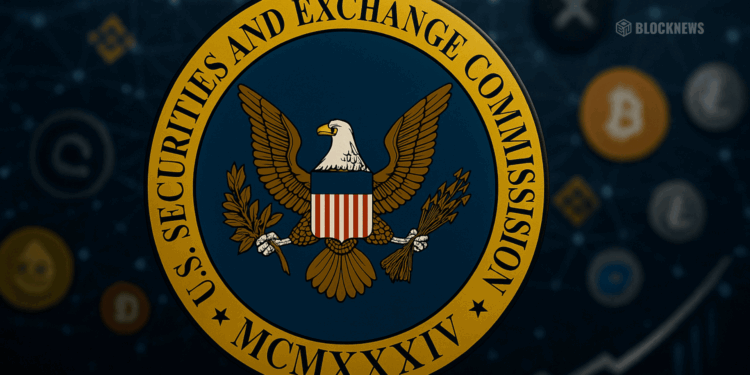- SEC launches sweeping crypto reform plan, proposing safe harbors, exemptions, and possible trading of digital assets on major exchanges.
- The regulator has flipped from strict enforcement in 2024 to a far more pro-crypto stance under Chair Paul Atkins and the Trump administration.
- Alongside easing rules, the SEC will push for streamlined disclosure requirements to boost transparency while reducing burdens on public companies.
The U.S. Securities and Exchange Commission (SEC) is rolling out a fresh rulemaking plan aimed at reshaping how crypto is regulated in America. The agenda is ambitious—calling for broad reforms that would loosen some of the rigid rules Wall Street and the crypto industry have long called burdensome. It’s the latest in a surprising streak of pro-crypto moves from the regulator in 2025, a far cry from the heavy-handed stance it enforced just a year ago.
A New Direction Under Chair Paul Atkins
The SEC highlighted several initiatives designed to overhaul existing crypto policies, many of which Chair Paul Atkins hinted at back in July. Among them: new proposals on how digital assets can be offered and sold, the possibility of exemptions and “safe harbors,” and clarification on how broker-dealer rules apply to crypto players. Perhaps the most notable piece? The SEC is weighing whether to allow cryptocurrencies to be traded directly on national securities exchanges and alternative trading systems. If approved, that would mark one of the biggest wins yet for the digital asset industry.
“This regulatory agenda reflects that it is a new day at the Securities and Exchange Commission,” Atkins said in a statement. “The items on the agenda represent the commission’s renewed focus on supporting innovation, capital formation, market efficiency, and investor protection.”
A Radical Shift From Gensler-Era Enforcement
This week alone, the SEC fueled a rally in crypto markets after green-lighting both the New York Stock Exchange and NASDAQ to offer spot Bitcoin and Ethereum trading. On top of that, the regulator announced plans for several roundtables later this year to hash out industry concerns directly with crypto leaders. It’s a 180-degree pivot from Gary Gensler’s era in 2024, where enforcement reigned supreme and innovation was often stifled.
Since Donald Trump’s return to the White House, the SEC has leaned more openly pro-crypto, aligning with broader government shifts toward financial innovation. The approval of the GENIUS stablecoin act earlier this year, alongside a wave of new crypto ETFs, has helped cement the industry’s momentum and growth trajectory.
Looking Ahead: Disclosure and Transparency
Even as the SEC loosens certain rules, it isn’t stepping away from its core mission of investor protection. The agency said it will also propose reforms around disclosure “rationalization” — essentially streamlining what companies are required to share with investors while still promoting transparency. Alongside that, the SEC is looking at ways to reduce compliance burdens for public companies, especially around shareholder proposals.
These moves show that while the SEC is finally embracing digital assets, it’s also trying to balance innovation with the kind of guardrails that keep investors safe. With ETFs, stablecoins, and exchange approvals already checked off the list in 2025, the stage seems set for crypto’s next big growth cycle.














